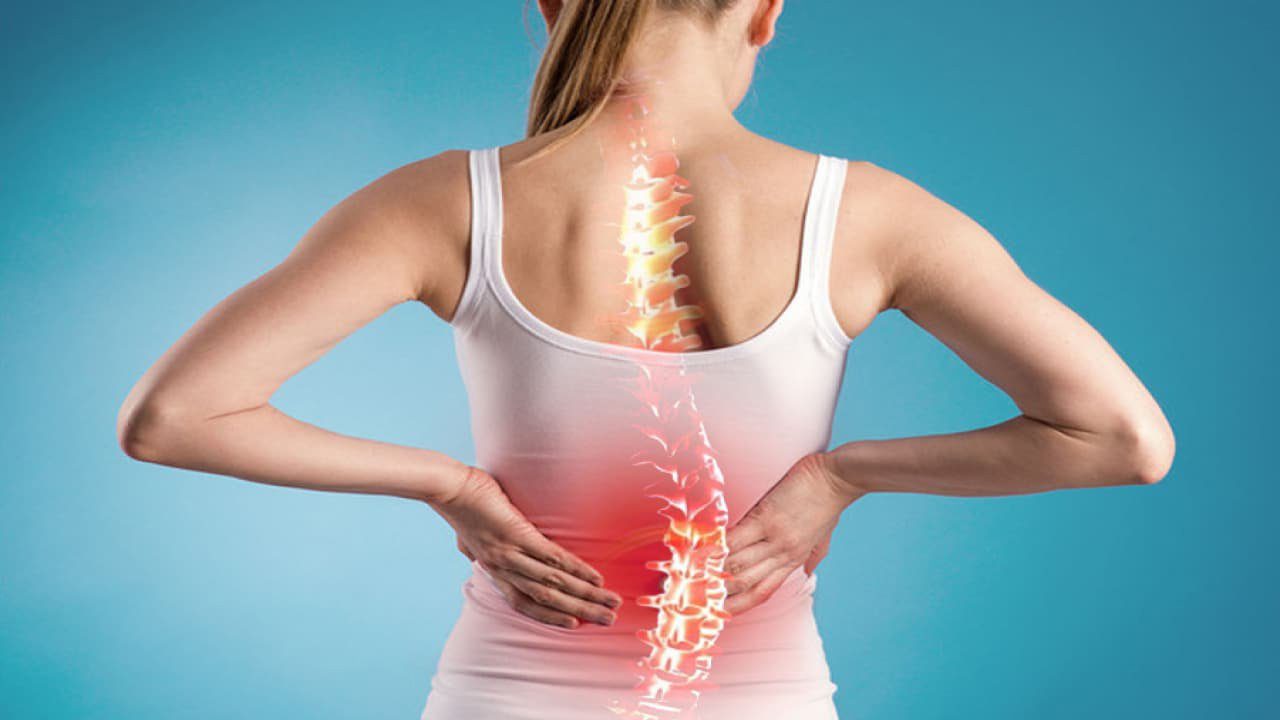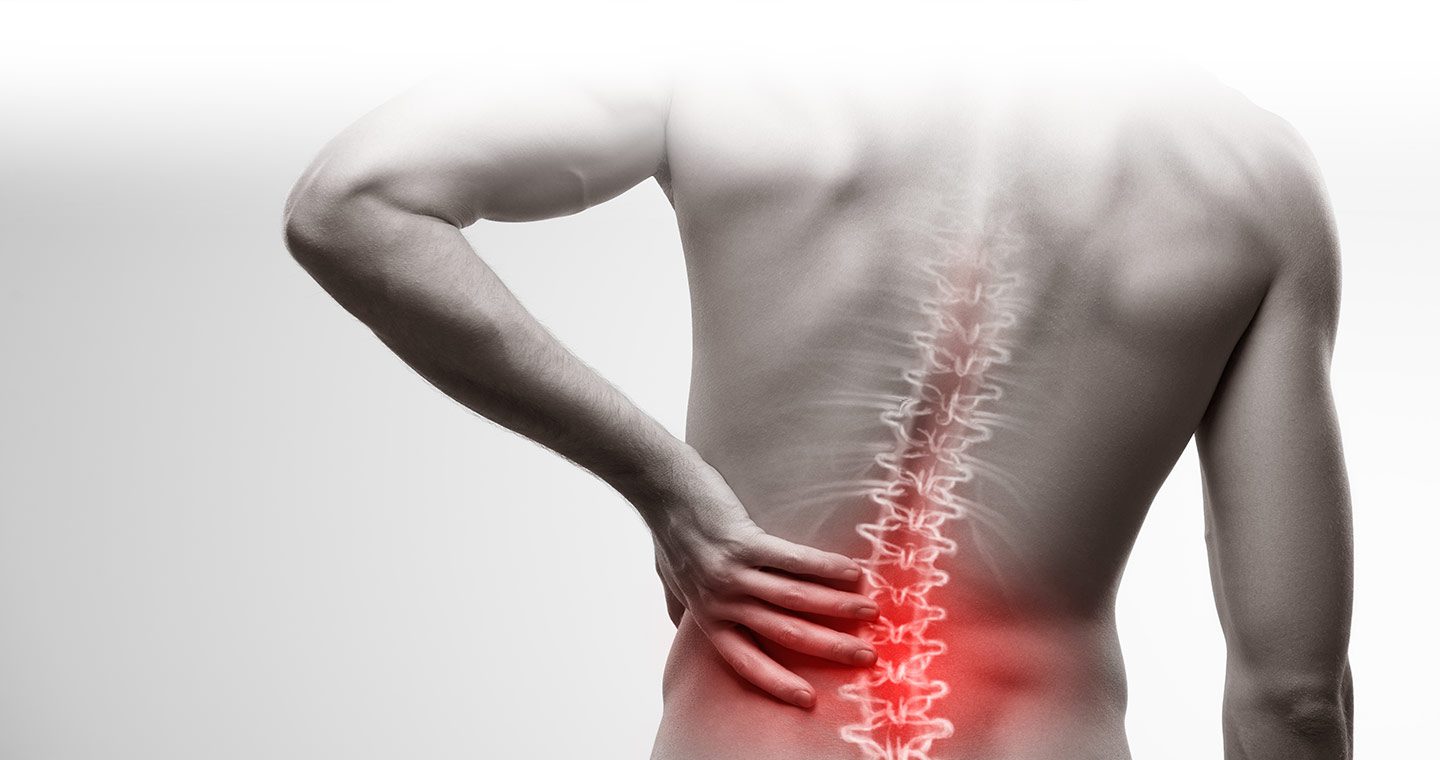
Can Constipation Cause Back Pain? Surprising Connection Revealed!
admin
- 0
- 9
Yes, constipation can cause back pain due to the pressure on the nerves in the lower back caused by the increased stool. When stool builds up in the colon, it can press against the nerves in the lower back, resulting in discomfort and pain.
This can be especially common in chronic constipation cases or when constipation is accompanied by straining during bowel movements. Therefore, it is important to address and treat constipation to alleviate back pain. Managing constipation through dietary changes, increased water intake, regular exercise, and possibly the use of laxatives can help relieve both constipation and back pain.

Table of Contents
ToggleUnderstanding The Link Between Constipation And Back Pain
Constipation is a common digestive problem that many people experience at some point in their lives. While the discomfort and bloating associated with constipation are well-known, few may realize that it can also cause back pain. Understanding the link between constipation and back pain can help individuals find relief and address the underlying issues.
In this section, we will explore how constipation affects the body and its musculoskeletal connection.
How Constipation Affects The Body
- When stool builds up in the colon, it can lead to increased pressure on the surrounding structures, including the nerves that innervate the lower back. This pressure can result in back pain.
- In some cases, the presence of a large stool mass can also cause the colon to push against nearby organs, leading to referred pain in the back.
- Constipation can disrupt the balance of gut bacteria, affecting the overall functioning of the digestive system. This imbalance may contribute to inflammation and muscle tension, which can manifest as back pain.
The Musculoskeletal Connection
- Chronic constipation can lead to the development of compensatory muscular patterns in the body. These patterns can strain the muscles in the lower back, causing pain and discomfort.
- Additionally, when individuals experience constipation, they often adopt postures that can further strain their back. For example, excessive straining and bearing down during bowel movements can place significant stress on the lower back muscles.
- Constipation-related back pain can also result from reduced mobility and physical activity due to the discomfort associated with the condition.
Understanding the relationship between constipation and back pain is crucial for effective management and prevention. By addressing constipation through lifestyle modifications, dietary changes, and medical interventions, individuals can alleviate both constipation and the resulting back pain.
Symptoms And Causes Of Constipation-Related Back Pain
Constipation-induced back pain is a common symptom that many people experience but often overlook. However, understanding the link between constipation and back pain is crucial to finding relief and preventing further discomfort. In this section, we will delve into the symptoms and causes associated with constipation-related back pain, helping you identify the problem and addressing it effectively.
Identifying Constipation-Induced Back Pain
- Back pain that is relieved after a bowel movement: If you notice that your back pain subsides or eases after having a bowel movement, it may be a sign of constipation-induced back pain. This occurs when the accumulated fecal matter exerts pressure on the surrounding muscles and nerves in the lower back.
- Abdominal bloating and discomfort: Constipation often leads to feelings of bloating and discomfort in the abdominal region. This can be caused by the build-up of gas and stool, which can then radiate to the back and cause pain.
- Difficult or infrequent bowel movements: Having less than three bowel movements per week or experiencing difficulty in passing stools are typical symptoms of constipation. When stool remains in the colon for an extended period, it can lead to back pain.
- Straining during bowel movements: If you find yourself straining excessively or spending a prolonged time on the toilet, it can strain the back muscles and contribute to back pain. Straining is often a result of hardened stools due to constipation.
Common Causes And Risk Factors
- Inadequate fiber intake: A diet lacking in fiber can increase the risk of constipation. Fiber adds bulk to the stool, making it easier to pass through the digestive system.
- Dehydration: Insufficient fluid intake can lead to dehydration, making the stool harder and more challenging to pass. Dehydration can also cause muscle cramps and contribute to overall discomfort.
- Sedentary lifestyle: Lack of physical activity or a sedentary lifestyle can lead to sluggish bowel movements and constipation. Regular exercise helps stimulate the bowels and promotes healthy digestion.
- Medications: Certain medications, such as opioids, antacids, antidepressants, and iron supplements, can cause constipation as a side effect. If you suspect your medication is contributing to constipation-induced back pain, consult your healthcare provider for alternative options.
- Stress and anxiety: The mind and gut are interconnected, and stress and anxiety can disrupt normal bowel function. Increased stress levels can lead to constipation and consequently contribute to back pain.
- Underlying medical conditions: Several medical conditions, such as irritable bowel syndrome (ibs), hypothyroidism, and pelvic floor dysfunction, can lead to chronic constipation and back pain.
By understanding the symptoms and causes of constipation-induced back pain, you can take the necessary steps towards relieving discomfort and improving your overall digestive health. Identifying the underlying cause and addressing it can greatly reduce the occurrence and severity of back pain associated with constipation.
The Mechanics Behind Constipation-Induced Back Pain
Constipation is not a pleasant experience. It can leave you feeling bloated, uncomfortable, and even in pain. But did you know that constipation can also cause back pain? It may seem like an unlikely connection, but the mechanics behind constipation-induced back pain are fascinating.
In this section, we will explore the role of the intestinal tract and how nerve irritation and compression contribute to this uncomfortable symptom.
The Role Of The Intestinal Tract
- The intestinal tract plays a crucial role in our digestive system. It is responsible for absorbing nutrients from the food we eat and eliminating waste from our body.
- When constipation occurs, the stool becomes hard and difficult to pass through the intestines. This can happen due to various reasons such as a lack of fiber in the diet, dehydration, or certain medications.
- As the stool builds up in the intestines, it can put pressure on the surrounding structures, including the spine and its associated nerves. This pressure can lead to back pain, particularly in the lower back area.
Nerve Irritation And Compression
- The nerves in our body are delicate structures that transmit signals between different parts of the body and the brain. When the intestines become impacted with stool, the nerves in the surrounding area can become irritated or compressed.
- The irritation or compression of these nerves can result in referred pain, which is felt in a location other than the actual source of the problem. In the case of constipation-induced back pain, the nerves in the lower back may send pain signals, even though the issue is originating from the intestines.
- Additionally, the compression of nerves can disrupt their normal function, leading to sensations of pain, numbness, or tingling in the lower back and surrounding areas.
Constipation and back pain may seem like an unlikely pair, but the mechanics behind it are quite intriguing. The intestinal tract plays a vital role in our digestive system, and when constipation occurs, it can lead to the accumulation of stool and subsequent pressure on the surrounding structures, including the spine and nerves.
This pressure can result in back pain, often in the lower back area. Furthermore, the irritation and compression of nerves can contribute to referred pain and other discomforting sensations. By understanding these mechanisms, we can better comprehend the relationship between constipation and back pain, and seek appropriate remedies to alleviate both symptoms.
Exploring The Surprising Research Findings
Constipation and back pain may not seem like they have much in common, but surprisingly, research suggests that there may be a connection between the two. In this section, we will delve into the intriguing findings that support this link and explore the scientific explanations behind it.
Studies Supporting The Connection
- A study published in the journal of pain found that individuals with chronic constipation were more likely to experience lower back pain compared to those without constipation. This suggests that there may be a causal relationship between the two conditions.
- Another study conducted by researchers from northwestern university discovered that patients with irritable bowel syndrome (ibs), a disorder commonly associated with constipation, reported a higher prevalence of back pain. This further supports the notion that bowel issues and back pain could be intertwined.
Scientific Explanation For The Link
- One potential explanation for the link between constipation and back pain is the shared nerve pathways within the body. The nerves responsible for transmitting pain signals in the gastrointestinal tract also innervate the muscles and structures in the lower back. Therefore, any disturbances in the digestive system, such as constipation, could potentially trigger pain sensations in the back.
- Constipation can lead to increased pressure within the abdomen, which in turn may put strain on the lower back. This added pressure can cause discomfort and contribute to the development or exacerbation of back pain.
- Additionally, some studies have suggested that chronic constipation may be associated with inflammation in the body. Inflammatory markers have been found to be elevated in individuals with constipation, and inflammation is a known contributor to various types of pain, including back pain.
While more research is needed to fully understand the intricate relationship between constipation and back pain, these findings highlight the importance of considering gastrointestinal health in individuals experiencing back pain. By addressing and managing constipation, it may be possible to alleviate or prevent associated back pain symptoms.
Remember, a healthy lifestyle that includes a balanced diet, regular exercise, and adequate fluid intake can play a significant role in promoting regular bowel movements and reducing the risk of constipation-related back pain.
Alleviating And Preventing Back Pain Through Constipation Relief
Back pain can be incredibly debilitating, affecting your ability to perform everyday activities. While there are many potential causes for back pain, one surprising factor that often gets overlooked is constipation. When you’re constipated, it can put pressure on the nerves in your lower back, leading to discomfort and pain.
We will explore how constipation can cause back pain and what you can do to alleviate and prevent it through constipation relief.
Lifestyle Modifications For Better Digestive Health
- Incorporate regular bowel movements into your daily routine: Establishing a consistent bathroom schedule can help promote regular bowel movements, preventing the buildup of stool and reducing the risk of constipation-related back pain.
- Manage stress levels: Stress can wreak havoc on your digestive system, leading to constipation. Incorporating stress-management techniques, such as deep breathing exercises or meditation, can help improve overall digestive health.
- Get enough sleep: Lack of sleep can disrupt the body’s natural rhythms, including bowel movements. Aim for 7-9 hours of quality sleep per night to support optimal digestion and bowel regularity.
Dietary Changes And Fiber Intake
- Increase fiber intake: Fiber plays a crucial role in maintaining regular bowel movements. Include fiber-rich foods such as fruits, vegetables, whole grains, and legumes in your diet to promote healthy digestion and prevent constipation.
- Stay hydrated: Drinking an adequate amount of water is essential for softening stools and promoting bowel movements. Aim to drink at least 8 glasses of water every day to support a healthy digestive system.
- Limit processed foods: Processed foods are often low in fiber and high in unhealthy fats, which can contribute to constipation. Opt for whole foods and limit your intake of processed snacks, desserts, and fast food.
Physical Activity And Exercises
- Engage in regular physical activity: Physical activity stimulates bowel movement and helps prevent constipation. Incorporate moderate exercises such as walking, swimming, or cycling into your routine to support a healthy digestive system.
- Try yoga poses for digestion: Certain yoga poses, such as the wind-relieving pose and the cat-cow pose, can help stimulate digestion and relieve constipation-related back pain. Consult with a certified yoga instructor for proper guidance.
- Avoid prolonged sitting: Sitting for long hours can contribute to constipation and back pain. Take regular breaks, stretch, and move around to keep your body active and encourage regular bowel movements.
By implementing these lifestyle modifications, dietary changes, and physical activities, you can alleviate constipation and prevent the associated back pain. Remember, it’s important to consult with a healthcare professional if you experience persistent or severe back pain to rule out any underlying medical conditions.
Prioritizing digestive health and taking proactive steps to prevent constipation will not only improve your overall well-being but also help you enjoy a pain-free life.
Seeking Medical Help For Constipation-Related Back Pain
Constipation can be an uncomfortable and painful condition that many of us have experienced at some point. But did you know that constipation can also be a culprit behind back pain? It may seem surprising, but there is a clear link between the two.
If you’re dealing with persistent back pain that seems to have no explanation, it may be worth seeking medical help for constipation-related back pain. Let’s explore the importance of medical evaluation and the therapeutic procedures and medications that can provide relief.
Importance Of Medical Evaluation
When it comes to constipation-related back pain, it’s crucial to understand that seeking medical evaluation is essential. Here’s why:
- Identifying the underlying cause: Back pain can have various potential causes, and constipation can be one of them. Consulting a medical professional will help determine if your back pain is indeed linked to constipation or if there might be another underlying condition causing the discomfort.
- Rule out serious conditions: While most cases of constipation-related back pain are benign, there’s always a small chance that it could be a symptom of a more serious condition. A medical evaluation can help rule out any red flags and provide peace of mind.
- Tailored treatment plan: Every individual’s constipation and back pain issues are unique. By seeking medical help, you can receive a personalized treatment plan that addresses your specific needs and helps alleviate both constipation and back pain effectively.
Therapeutic Procedures And Medications
Once you’ve consulted a medical professional and received a proper diagnosis, there are several therapeutic procedures and medications that can provide relief. Consider the following options:
- Dietary changes: Increasing fiber intake, staying hydrated, and consuming probiotics may help regulate bowel movements, easing constipation and consequently reducing back pain.
- Exercise and stretches: Physical activity promotes regularity, helping to prevent constipation. Additionally, certain exercises and stretches can specifically target the back muscles, providing relief from associated pain.
- Over-the-counter laxatives: In some cases, over-the-counter laxatives can be effective in treating temporary constipation. However, it’s essential to use these medications under the guidance of a healthcare professional.
- Prescription medications: For chronic or severe constipation, prescription medications such as stool softeners, osmotic laxatives, or prokinetics may be necessary. These medications can help promote regular bowel movements and alleviate back pain.
Remember, seeking medical help is vital to properly assess and manage constipation-related back pain. A medical professional can guide you through the available therapeutic procedures and medications, ensuring a tailored treatment plan for your specific needs. Don’t let constipation hold you back from enjoying a pain-free life!
Long-Term Strategies For Managing Constipation And Back Pain
Constipation can be an uncomfortable and frustrating issue to deal with, but did you know that it can also cause back pain? The connection between constipation and back pain may not be immediately obvious, but the strain and pressure on the lower back that often accompanies constipation can lead to discomfort and even pain.
Luckily, there are long-term strategies you can implement to manage both constipation and back pain effectively. In this section, we will explore how creating a sustainable self-care routine and building healthy habits can help alleviate these symptoms.
Creating A Sustainable Self-Care Routine
- Prioritize regular physical activity: Engaging in regular exercise can help stimulate your digestive system, reduce constipation, and strengthen the muscles in your back. Incorporate activities like walking, swimming, or yoga into your daily routine.
- Hydrate adequately: Maintaining proper hydration is essential for preventing constipation. Aim to drink at least eight glasses of water per day and limit your intake of sugary or caffeinated beverages.
- Follow a high-fiber diet: Including fiber-rich foods in your meals can promote bowel regularity and ease constipation. Opt for fruits, vegetables, whole grains, and legumes in your diet.
- Avoid processed and fatty foods: These can contribute to constipation and exacerbate back pain. Instead, focus on consuming nutritious, whole foods that support overall gut health.
- Practice stress-management techniques: Stress can disrupt normal bowel movements and worsen constipation. Engage in relaxation techniques such as deep breathing exercises, meditation, or mindfulness to alleviate stress and promote bowel regularity.
Building Healthy Habits
- Establish a regular bathroom routine: Try to train your body to have a consistent time for bowel movements each day. A regular routine can help regulate your digestive system and prevent constipation.
- Do not ignore the urge to go: Ignoring the urge to have a bowel movement can lead to constipation. It’s important to listen to your body and respond promptly to its signals.
- Use the correct toilet posture: Sitting with your feet on a small step stool or using a specialized toilet seat can align your body in a more natural position for easier elimination.
- Consider over-the-counter remedies: In some cases, you may need additional support to alleviate constipation. Consult a healthcare professional who may recommend mild laxatives or stool softeners.
- Practice good posture: Maintaining good posture helps alleviate stress on your back. Sit and stand up straight, use proper ergonomics when lifting objects, and consider using a lumbar support pillow while sitting for extended periods.
By implementing these long-term strategies into your daily routine, you can effectively manage constipation and minimize back pain. Remember, consistency and persistence are key to achieving lasting relief.
Frequently Asked Questions For Can Constipation Cause Back Pain
Can Constipation Cause Back Pain?
Yes, constipation can cause back pain. When the bowels are backed up, it can put pressure on the lower back, resulting in pain and discomfort. The strain during bowel movements can also aggravate existing back conditions, leading to further pain.
Keeping your digestive system healthy and addressing constipation can help alleviate back pain.
How Does Constipation Affect The Body?
Constipation affects the body by causing difficulty in passing stools. This can lead to bloating, abdominal discomfort, and in some cases, back pain. It can also result in toxins building up in the body, affecting overall health. Maintaining a healthy diet, exercising regularly, and staying hydrated can help prevent and alleviate constipation.
What Are The Symptoms Of Constipation?
Common symptoms of constipation include infrequent bowel movements, difficulty passing stools, bloating, abdominal pain, and a sense of incomplete bowel emptying. Back pain can also be a symptom of constipation, as the pressure from backed-up bowels can radiate to the lower back.
Consulting a healthcare professional is recommended for persistent symptoms.
Is There A Link Between Constipation And Back Pain?
Yes, there is a link between constipation and back pain. When the colon is obstructed with waste, it can lead to back pain due to the pressure on surrounding tissues and nerves. Additionally, straining during bowel movements can aggravate existing back conditions.
Addressing constipation through lifestyle changes and treatment can help alleviate back pain.
How Can I Prevent Constipation And Back Pain?
To prevent constipation and back pain, it is important to maintain a healthy lifestyle. This includes consuming a fiber-rich diet, drinking plenty of water, exercising regularly, and managing stress levels. Additionally, avoiding certain foods that may contribute to constipation, such as processed foods and dairy, can be beneficial.
If symptoms persist, consulting a healthcare professional is advisable.
Conclusion
To summarize, it is evident that constipation can indeed cause back pain. Poor bowel movements and the accumulation of waste in the digestive system can lead to pressure and discomfort, which can radiate to the back. Furthermore, when stool builds up in the colon, it can put strain on the surrounding muscles and nerves, resulting in backache.
It is crucial to address constipation issues promptly to alleviate back pain symptoms. Implementing lifestyle modifications such as eating a fiber-rich diet, staying hydrated, exercising regularly, and managing stress can help prevent constipation and consequently reduce the risk of back pain.
Seeking medical advice is essential for individuals experiencing chronic constipation and severe back pain, as a healthcare provider can suggest appropriate treatment options to provide relief. By maintaining a healthy digestive system, we can create a strong foundation for overall wellness and alleviate the potential discomfort caused by constipation-induced back pain.



